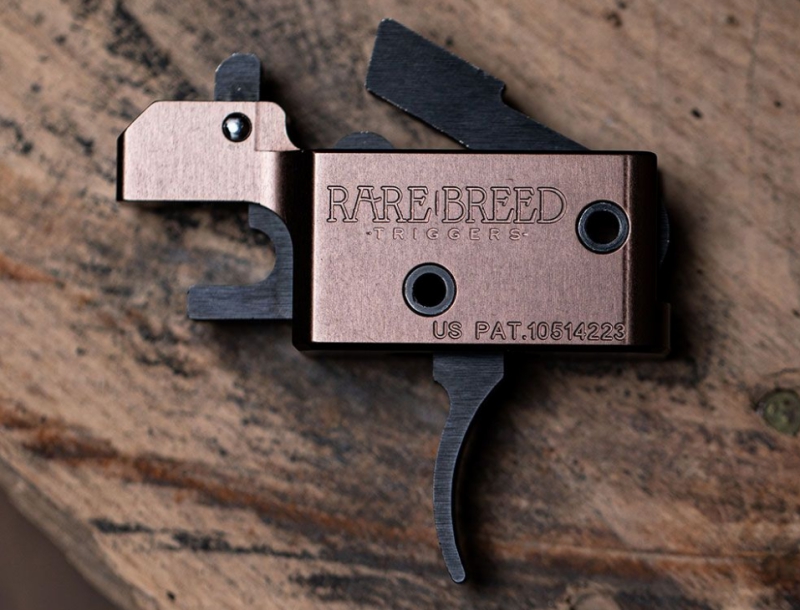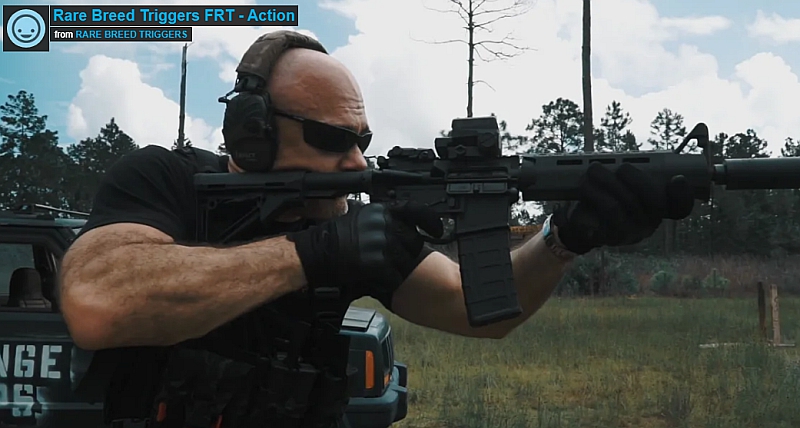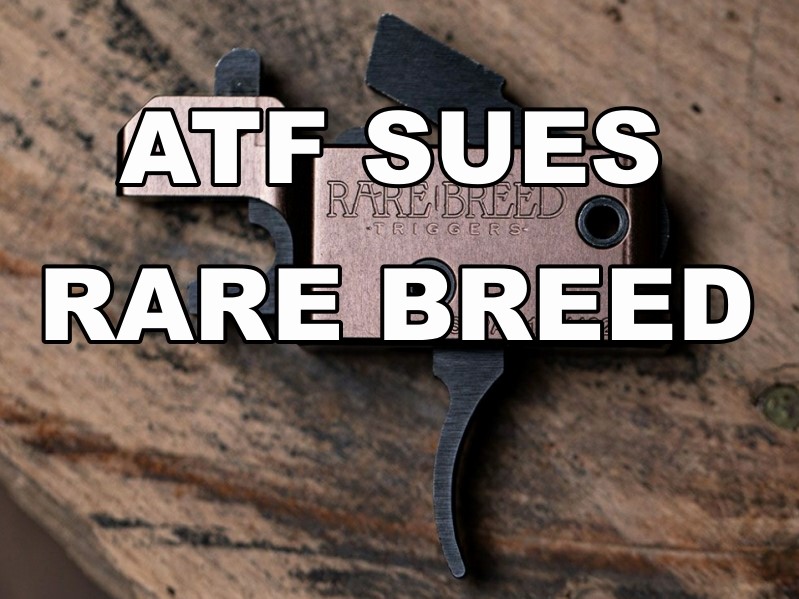[ad_1]
The ongoing conflict over the Rare Breed Forced Reset Trigger (FRT-15) has resulted in a federal lawsuit in which the Bureau of Alcohol, Tobacco, Firearms, and Explosives (ATF) accuses Rare Breed of conspiring to defraud the Unites States. Specifically, the suit claims that Rare Breed has “knowingly and intentionally conspired to defraud the United States by impeding, impairing, obstructing, and defeating the lawful Government functions of ATF in their regulation of machineguns under the National Firearms Act of 1934 (NFA) and the Gun Control Act of 1968 (GCA).”

The suit further claims that ATF has probable cause to believe that Rare Breed has “engaged in the ongoing commission of mail fraud…wire fraud…as well as conspiracy to commit mail and wire fraud…in connection with their sale of the illegal FRT-15s.”
Interestingly, this action is a civil suit, not a criminal proceeding. The ATF asks the court for “injunctive relief…in order to protect the United States from further fraud.” The January 19, 2023, suit was filed in Federal District Court in the Eastern District of New York. The judge has unsurprisingly issued a temporary restraining order (TRO) against Rare Breed Firearms, Rare Breed Triggers, Company President Lawrence DeMonico, and owner Kevin Maxwell. Violation of the TRO by selling any more FRT-15s could result in serious criminal charges against DeMonico and Maxwell.

What is the FRT-15?
The term “forced reset” is an accurate descriptor of how the trigger works. Standard AR triggers reset when the shooter releases rearward pressure, thus allowing the trigger mechanism to move forward, whereupon another trigger press starts the whole process over. The FRT-15 uses a newly designed hammer that, as it is cocked by the bolt carrier, forces the trigger forward to the reset, along with the shooter’s finger, as the bolt moves forward to chamber the next round.
A locking bar prevents the trigger from being pressed again until the bolt cycle is complete. By maintaining pressure on the trigger, the shooter can take advantage of the hammer-assisted reset to dramatically increase the rate of fire.
Keep in mind that the locking bar’s pressure on the trigger prevents another press until the bolt cycles. The completion of the bolt cycle is what releases the locking bar. Between the hammer and the locking bar, the shooter cannot simply hold the trigger to the rear. It must execute its function for each round fired. So, while the FRT-15 is capable of a prodigious rate of fire, Rare Breed contends that it is still a semi-automatic trigger.

What’s the problem?
Rare Breed did not submit the FRT-15 to ATF for classification. They believe their product is a semi-automatic trigger by definition, so they saw no need. ATF obtained two examples of the FRT-15 commercially and tested their function. Based on those tests, ATF classified the FRT-15 as a machine gun under the NFA and GCA.
ATF sent a Cease-and-Desist order to Rare Breed, which the company defied. Rare Breed also sued the ATF in a Florida Court, where they lost. Nevertheless, Rare Breed continued selling FRT-15s.
The Charges Against Rare Breed
As noted above, ATF is suing the company and its executives for fraud against the United States because the company allegedly sold illegal “machine guns,” thus disregarding the ATF’s duty to “protect” the public against such devices. The mail and wire fraud charges stem from Rare Breed’s allegedly misleading its customers and shipping FRT-15’s and the similar “Wide Open Trigger (WOT) under a false name (Red Beard Treasures).
The ATF also claims that, by selling tens of thousands of these products illegally, they cost the government an estimated $32 million in unpaid tax stamps. That charge seems very shaky because of the way machine gun law works, but the government seems to be all in against Rare Breed.

US Attorney General Merrick Garland said, regarding the suit, that the Justice Department will do “everything in its power to protect the American people from gun violence and to hold accountable those that flood our communities with illegal guns.” Never mind that not one FRT-15 has been used in a crime.
The Outlook for Rare Breed
The final result is difficult to predict, but some things seem fairly clear. The ATF has massaged the definition of “machinegun” by claiming the NFA language of “a single pull of the trigger” may be interpreted as “a single function of the trigger.” If allowed, that change could be significant. The FRT-15 clearly requires one “pull” per round fired. But how the term “function” is defined regarding the FRT-15 is murkier.
The government chose possibly the most anti-gun court in possibly the most anti-gun state to file the suit. A judge in Brooklyn is not likely to be gun friendly. Indeed, the TRO has already been issued, with a preliminary injunction likely to follow. The suit doesn’t say so, but it seems very likely that the government is lining up criminal charges against DeMonico and Maxwell. A successful civil suit stopping the FRT-15’s sale would be a potential weapon in such a case.

One thing is clear: the government appears to be trying to ruin Rare Breed, DeMonico, and Maxwell financially. The suit is asking the court to order Rare Breed to reimburse everyone who bought FRT-15s and WOTs, as well as making good on the alleged lost tax money. There’s no way the defendants have that kind of cash.
The first round probably won’t go well for Rare Breed. The company will likely appeal, but that would go to the Second US Circuit Court of Appeals, which is equally anti-gun. This will be a major story moving forward. We will keep you up to date as it progresses. You can read the suit for yourself at courtlistener.com.
[ad_2]
#ATF #Sues #Rare #Breed #Mag #Life
